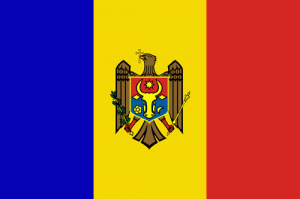 I am a public health professional representing the organization Center for Health Policies and Studies (PAS), an NGO working in policy analysis and research in health in Moldova. In June 2012 we became aware of the intention of the government to change patent legislation by introducing data exclusivity as an additional IPR measure in addition to TRIPS provisions and started to inquire as to the origins of this initiative.
I am a public health professional representing the organization Center for Health Policies and Studies (PAS), an NGO working in policy analysis and research in health in Moldova. In June 2012 we became aware of the intention of the government to change patent legislation by introducing data exclusivity as an additional IPR measure in addition to TRIPS provisions and started to inquire as to the origins of this initiative.
The Republic of Moldova, a country in the Eastern European region, has started in 2011 the process of confidential negotiations for Deep and Comprehensive Free Trade Agreement with the European Union (EU). In these negotiations the EU requires the Republic of Moldova to introduce in the national legislation data exclusivity as a new form of protection of intellectual property for the maximum period of 11 years (8+2+1). There was first round of negotiations where Moldova has opposed introduction of data exclusivity because of the impact on price of drugs, but the official answer of DG trade was that EU interpretation of unfair commercial use is in line with TRIPS agreement.
The Republic of Moldova is a lower-middle income country where health expenditures for pharmaceuticals are already high and exceed the regional prices. Health expenditures from public and health insurance sources for pharmaceuticals cover only 27.9% from total drug expenditure, and most part of drug expenditures is paid directly by the population. Drug expenditures represent 70% of out-of-pocket health expenditures in a household and are the main factor that reduces financial protection of the citizens when they access health services. A comparative study conducted in eight countries in the former Soviet Union has shown that the main reason for two thirds (63.9%) of Moldovans who did not seek health care when they felt it was justified was the cost of drugs and health services. Given this alarming situation, the Government of the Republic of Moldova has expressed its concern about its pharmaceutical market and regulation and has set as a priority medicines price reduction and decrease of financial burden on its
citizens. Introduction of “data exclusivity” would be counterproductive to this effort.
Therefore, we have started advocacy efforts with both NGO sector, the Ministry of Health and sent a common letter to the Prime Minister, the Ministry of Economy and Ministry of External Affairs to continue efforts to oppose introduction of data exclusivity. We have also conducted an express analysis on data exclusivity and its consequences for Moldova that can be found at: http://www.pas.md/libview.php?l=en&idc=45&id=1301
Has anyone been in direct negotiations for FTAs and has been successful in finding compromise solutions? What specific arguments work? What are the limits of these negotiations from DG Trade? What are the best advocacy strategies?
Also, please support us by posting this e-mail on other health or IP lists as well.
Many thanks!
Stela Bivol, MD, MPH
Policy and Research Director
Center for Health Policies and Studies
Access to Essential Medicines (AEMI) Fellow, OSF
Email: sbivol@gmail.com




